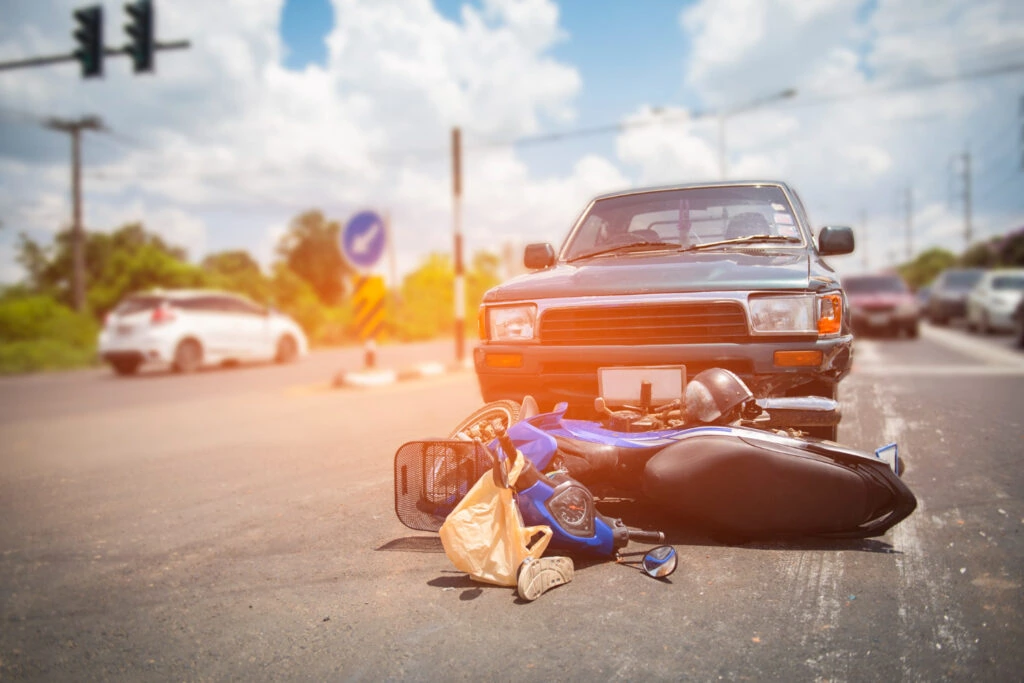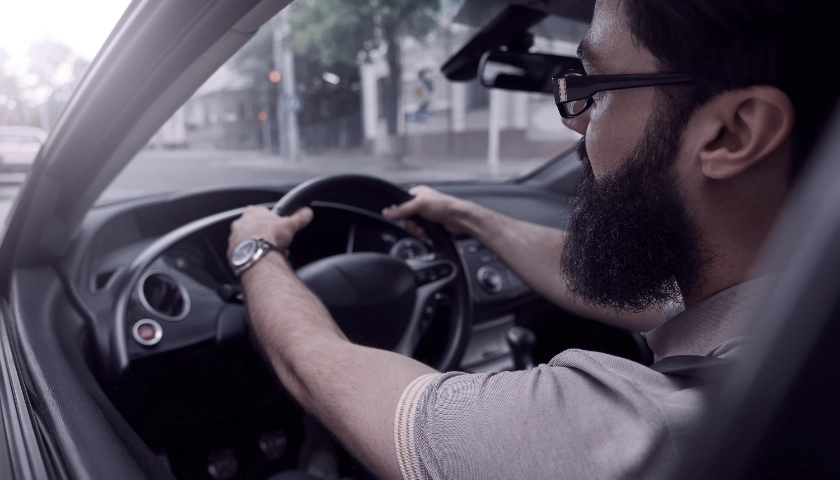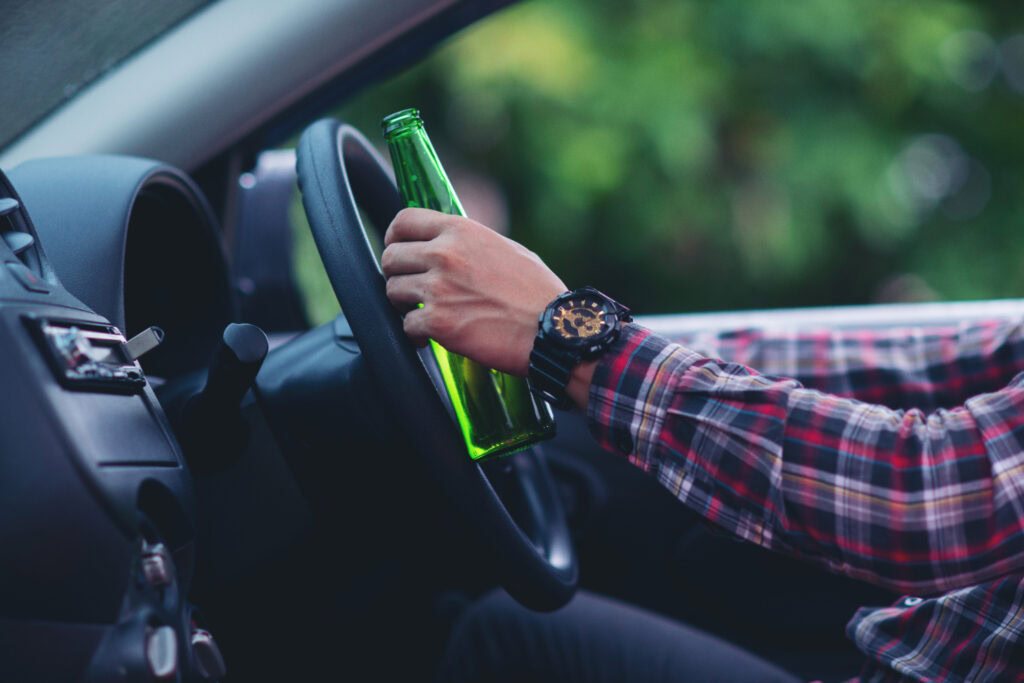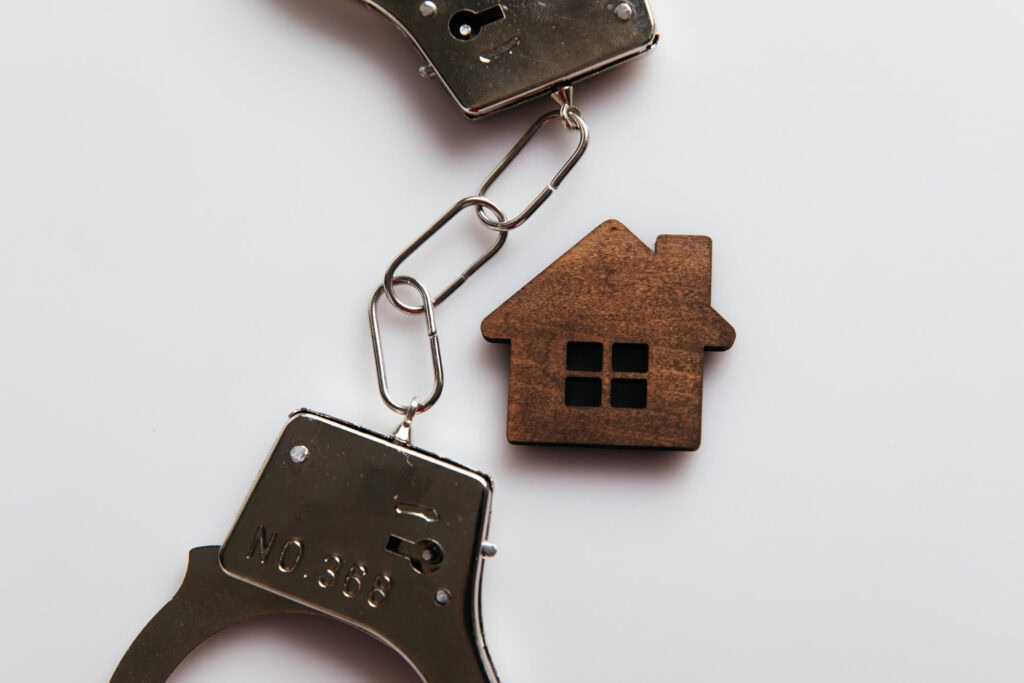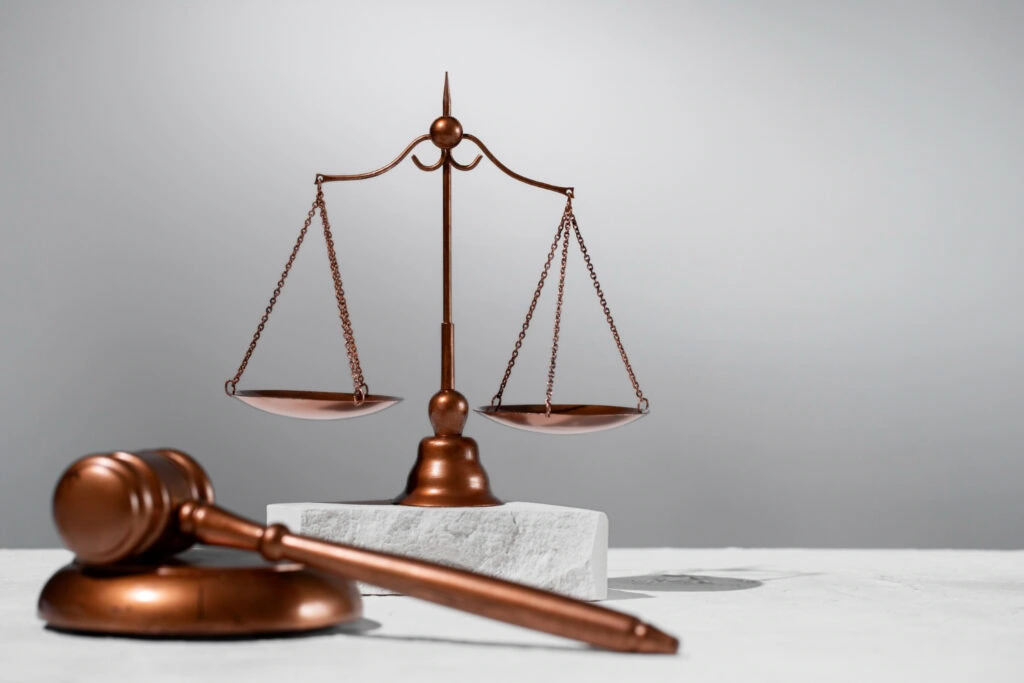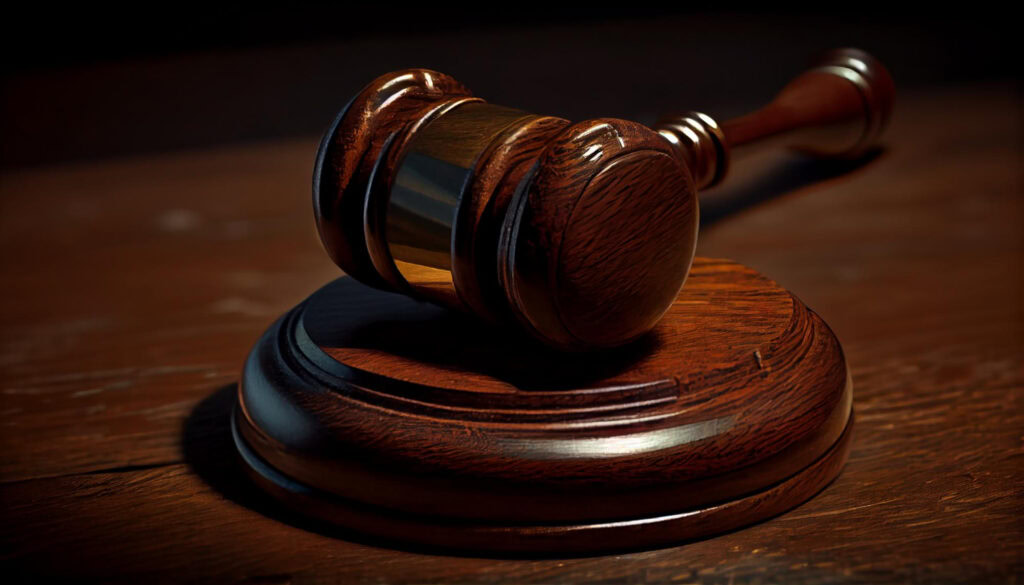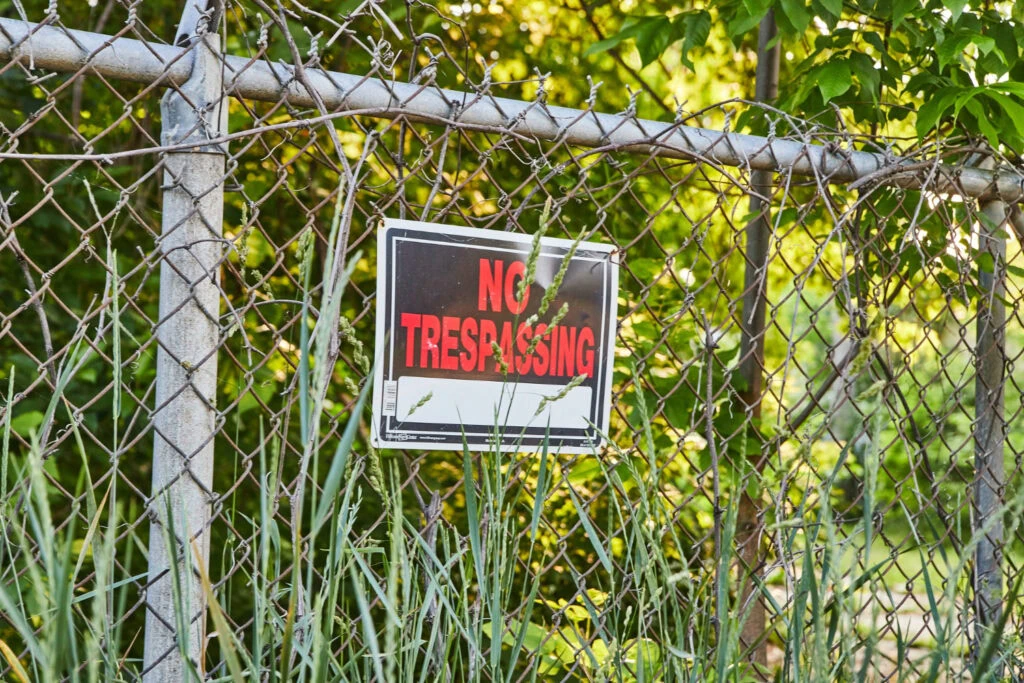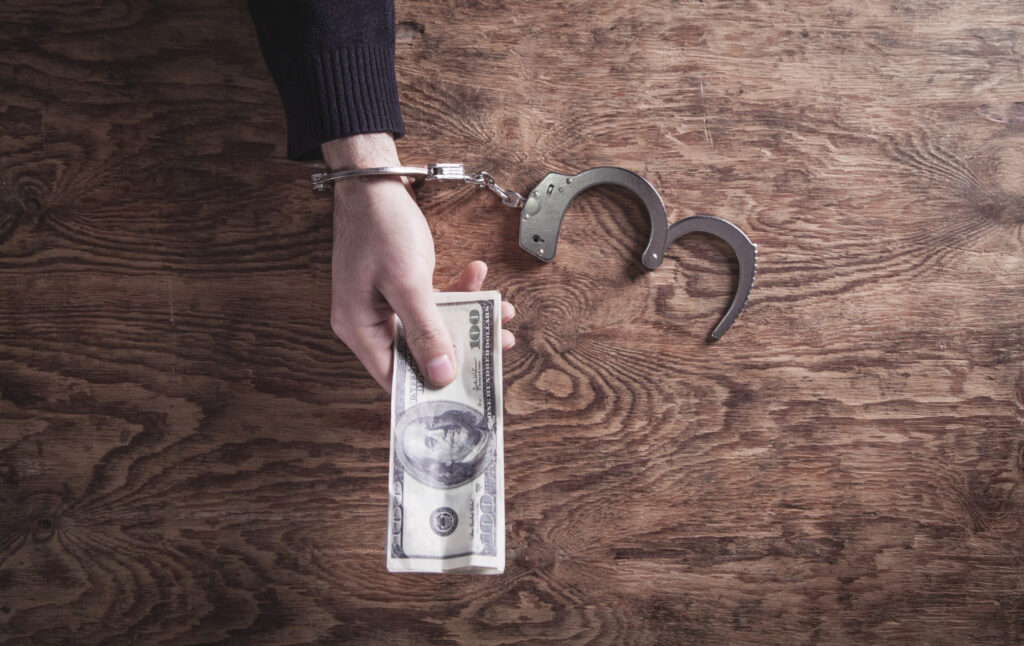Have you ever felt the surge of panic after a traffic accident, torn between stopping and fleeing the scene? You should know that leaving the scene of an accident can lead to severe legal consequences.
This article will provide unambiguous information on just what to expect if you find yourself in this precarious situation – hefty fines, potential jail time, insurance implications and more.
Knowledge is power; let’s delve into understanding your rights and obligations during these critical moments.
Criminal Consequences of Leaving Scene of Accident
Leaving the scene of an accident can lead to serious criminal consequences, including both misdemeanor and felony charges depending on the circumstances.
Misdemeanor Hit-and-Run
A traffic accident can be a jarring event, but fleeing the scene before law enforcement arrives could escalate the situation into a criminal offense known as a misdemeanor hit-and-run. This act is punishable by law with varying severity depending on individual state regulations.
For instance, in Florida, perpetrators face charges of a second-degree misdemeanor if they leave an accident scene involving only property damage. A direct consequence includes potential jail time and fines that serve to deter such illegal actions and encourage responsible behavior on the road.
It’s crucial for drivers to stay at the crash site, exchange information with other parties involved and report any property damage so as not to inadvertently fall foul of these stringent rules against hit-and-run misdemeanors.
Felony Hit-and-Run
A felony hit-and-run occurs when a driver involved in an accident knowingly leaves the scene without providing appropriate identification or assistance to the injured party. This serious offense is treated with significant severity across various states due to its potential life-altering consequences.
For instance, in Massachusetts, this act is considered a high-level felony offense – highlighting just how gravely it’s taken within legal parameters.
Specifics of the punishment may vary from state to state but generally involve incarceration and steep fines. A fine up to $10,000 can be imposed on the guilty party depending upon their state laws.
In situations where an accident triggers severe injury or death of another individual, leaving the scene upgrades the crime to a third-degree felony. It attracts compulsory jail time for a minimum period of 90 days accompanied by not less than $1,000 as a fine payment.
Regulatory bodies impose these harsh penalties as deterrent measures against evasion following vehicle collisions and personal injury accidents.
Possible Jail Time and Fines
Facing criminal charges for hit and run incidents puts you at risk of serious consequences such as possible jail time and fines. The severity of the punishment varies depending on whether the event is categorized as a misdemeanor or felony.
Misdemeanor charges, typically related to minor accidents with no significant injuries, can lead to fines of around $1,000 and up to a year in prison. More severe scenarios like fatally hitting someone and then fleeing call for harsher penalties.
States like Florida could enforce penalties including 12 months in prison and/or fines up to $2,500 while New York sees this act as an egregious crime with a potential sentence of up to 7 years alongside associated fines.
Moreover, these weights can inflate if it’s deemed a third-degree felony—a scenario usually seen when leaving the scene of a fatality accident—where the minimum fine starts from $2,500 coupled with at least one year behind bars.
These crucial laws and punishments underline why drivers must face their accountability during unfortunate moments instead of choosing unlawful escape; doing so intensifies the original problem into life-altering complications carrying heavy financial burdens and sapped freedom due to time spent incarcerated.
Administrative Consequences of Leaving the Scene of an Accident
Leaving the scene of an accident can result in administrative consequences such as license suspension or revocation, which may last for a few months to a few years depending on state laws.
License Suspension or Revocation
Leaving the scene of an accident can have serious consequences, including license suspension or revocation. In Minnesota, for example, if you leave the scene of a fatal or personal injury accident, your driver’s license may be revoked for six months.
Even in cases where there is only property damage of more than $50, your license could still face suspension or revocation. These administrative consequences serve as an important deterrent to ensure drivers take responsibility for their actions.
So remember, leaving the scene of an accident can lead not only to criminal charges but also to significant disruptions in your driving privileges.
Civil Consequences of Leaving the Scene of an Accident
Leaving the scene of an accident can have severe civil consequences, including liability for damages and injuries, potential lawsuits, and a significant impact on car insurance.
Liability for Damages and Injuries
If you leave the scene of an accident without exchanging information, it can have serious consequences when it comes to liability for damages and injuries. By fleeing the scene, you make it difficult for those affected to collect compensation from your insurance company.
Whether it’s property damage or bodily injury, being held accountable for the harm caused is not something that should be taken lightly. Remember, if you’re involved in an accident, stay at the scene and fulfill your legal obligations by reporting it to the police.
Potential Lawsuits
Leaving the scene of an accident can have serious consequences, including potential lawsuits. If you flee after being involved in a car crash, you may be held liable for any damages or injuries caused by your actions.
This means that the victim or their insurance company can sue you to recover compensation for medical bills, property damage, lost wages, pain and suffering, and other related expenses. These lawsuits can result in significant financial burdens and legal repercussions.
It’s important to remember that fleeing the scene of an accident is not only morally wrong but also legally punishable as a criminal offense. So if you find yourself in this situation, it’s crucial to stay at the scene and fulfill your legal obligations instead of risking potential lawsuits down the line.
Impact on Car Insurance
Leaving the scene of an accident can have significant consequences for your car insurance, including increased premiums and even potential policy cancellation or non-renewal.
Increased Premiums and Potential Policy Cancellation or Non-renewal
Being involved in a hit-and-run accident can have serious consequences for your car insurance. One of the immediate impacts is the likelihood of increased premiums. Insurance companies view hit-and-run incidents as indicators of risky behavior, which can lead to higher rates on your policy.
Additionally, there is also the potential for policy cancellation or non-renewal. Insurance companies may cancel your policy or refuse to renew it when it expires due to the added risk associated with leaving the scene of an accident.
It’s important to note that even if you were not at fault for the accident, these consequences can still come into play. So, it’s crucial to fulfill your duty and stop after an accident, both for legal reasons and to protect yourself from potential insurance issues.
Key Takeaways
- Leaving the scene of an accident can result in serious legal consequences, including fines and potential jail time.
- The severity of the punishment depends on whether the offense is deemed a misdemeanor or felony, with more severe penalties for accidents involving injuries or fatalities.
- Administrative consequences can include license suspension or revocation, lasting for months to years depending on state laws.
- There are also civil consequences, such as liability for damages and injuries, potential lawsuits, and negative impacts on car insurance.
Conclusion: Contact David L. Faulkner for help!
Leaving the scene of an accident can have severe consequences. There are criminal penalties, such as fines and jail time, and administrative repercussions like license suspension or revocation.
If you find yourself in this situation, contact David L. Faulkner Law for help. Our experienced attorneys can provide you with sound legal advice and represent you in court if necessary. We understand that everyone makes mistakes, but it’s important to take responsibility for them and get the help you need.
Contact us today so we can guide you through the process of resolving your legal matter.


